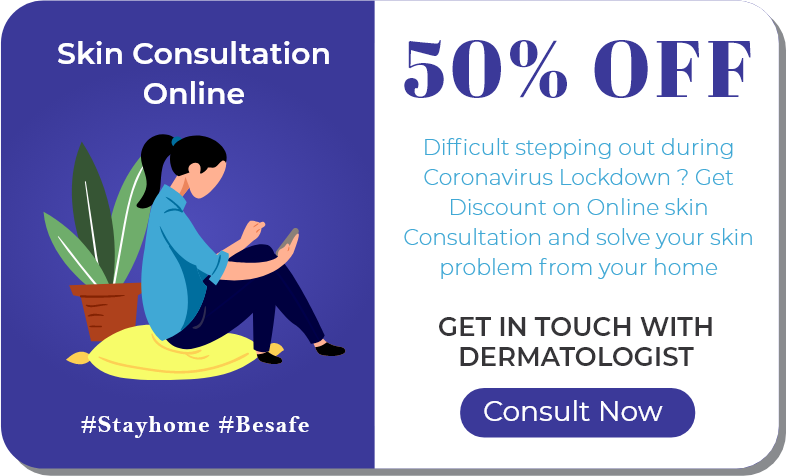Herpes Simplex 2
Genital herpes is a common sexually transmitted infection caused by the herpes simplex virus (HSV). Sexual contact is the primary way that the virus spreads. After the initial infection, the virus lies dormant in body and can reactivate several times a year.
Genital herpes can cause pain, painful blisters (fluid-filled bumps), itching and sores in genital area. But there are no signs or symptoms of genital herpes. If infected, can be contagious even if have no visible sores.
There’s no cure for genital herpes, but medications can ease symptoms and reduce the risk of infecting others. Condoms also can help prevent the spread of a genital herpes infection. About 16% of people between the ages of 14 and 49 have this STD.
The appearance of blisters is known as an outbreak. First outbreak will appear as early as two days after contracted the virus, or as late as 30 days afterward.
General symptoms for males include blisters on the penis, scrotum, or buttocks (near or around the anus).
General symptoms for females include blisters around or near the vagina, anus, and buttocks.
General symptoms for both males and females include the following:
- Blisters may appear in mouth and on lips, face, and anywhere else that came into contact with the infected areas.
- The infected site often starts to itch, or tingle, before the actual appearance of blisters.
- The blisters may become ulcerated (open sores) and ooze fluid.
- A crust may appear over the sores within a week of the outbreak.
- Lymph glands may become swollen. Lymph glands fight infection and inflammation in the body.
- May have headaches, body aches, and fever.
General symptoms for a baby born with herpes (received through a vaginal delivery) may include ulcers on the face, body, and genitals. Babies who are born with genital herpes can develop very severe complications and experience:
- Blindness,
- brain damage,
- Death.
Two types of herpes simplex virus infections can cause genital herpes:
HSV-1: This is the type that usually causes cold sores or fever blisters around mouth. HSV-1 is often spread through skin-to-skin contact, though it can be spread to genital area during oral sex. Recurrences are much less frequent than they are with HSV-2 infection.
HSV-2: This is the type that commonly causes genital herpes. The virus spreads through sexual contact and skin-to-skin contact. HSV-2 is very common and highly contagious, whether or not have an open sore.
Because the virus dies quickly outside of the body, it’s nearly impossible to get the infection through contact with toilets, towels or other objects used by an infected person.
The viruses get into body through mucous membranes. Mucous membranes are the thin layers of tissue that line the openings of body. They can be found in nose, mouth, and genitals.
Once the viruses are inside body, they incorporate themselves into cells and then stay in the nerve cells of pelvis. Viruses tend to multiply or adapt to their environments very easily, which makes treating them difficult.
HSV-1 or HSV-2 can be found in infected people’s bodily fluids, including:
- Saliva,
- Semen,
- Vaginal secretions.
It’s very important that to tell a doctor that have genital herpes if women became pregnant. They will take precautions to prevent the virus from being transmitted to baby during delivery, with one likely method being that baby would be delivered via cesarean rather than routine vaginal delivery.
There’s no cure for genital herpes. Treatment with prescription antiviral medications may:
- Help sores heal sooner during an initial outbreak,
- Lessen the severity and duration of symptoms in recurrent outbreaks,
- Reduce the frequency of recurrence,
- Minimize the chance of transmitting the herpes virus to another.
Antiviral medications used for genital herpes include:
- Acyclovir
- Valacyclovir
Doctor may recommend that take the medicine only when have symptoms of an outbreak or that take a certain medication daily, even when have no signs of an outbreak. These medications are usually well-tolerated, with few side effects. In the meantime, don’t kiss or have any kind of sex with other people. Even if you don’t have symptoms, you can still spread the disease.
As long as sexually active, there’s a chance to get herpes. Make it a lot less likely if use a latex or polyurethane condom or dental dam every time, for every activity. The dam or condom only protects the area it covers. If don’t have herpes, should get tested for STDs before sex. If both partner disease-free and aren’t having sex with other people, should be safe.
Use mild cleansers when bathing or showering in warm water. Keep the infected site clean and dry. Wear loose cotton clothing to keep the area comfortable.
If suspect have genital herpes, or any other sexually transmitted infection, consult a doctor.
It’s normal to be concerned about the health of baby when have any type of STD. Genital herpes can be spread to baby if have an active outbreak during a vaginal delivery. It’s important to tell doctors that have genital herpes as soon as know pregnant.
- Oxford hand Book of medical Dermatology
- ABC Of Dermatology
- Andrew’s Diseases of the skin
Herpes Simplex 2
TUI - Tibot Urgency Index

Genital herpes is a common sexually transmitted infection caused by the herpes simplex virus (HSV). Sexual contact is the primary way that the virus spreads. After the initial infection, the virus lies dormant in body and can reactivate several times a year.
Genital herpes can cause pain, painful blisters (fluid-filled bumps), itching and sores in genital area. But there are no signs or symptoms of genital herpes. If infected, can be contagious even if have no visible sores.
There’s no cure for genital herpes, but medications can ease symptoms and reduce the risk of infecting others. Condoms also can help prevent the spread of a genital herpes infection. About 16% of people between the ages of 14 and 49 have this STD.
The appearance of blisters is known as an outbreak. First outbreak will appear as early as two days after contracted the virus, or as late as 30 days afterward.
General symptoms for males include blisters on the penis, scrotum, or buttocks (near or around the anus).
General symptoms for females include blisters around or near the vagina, anus, and buttocks.
General symptoms for both males and females include the following:
- Blisters may appear in mouth and on lips, face, and anywhere else that came into contact with the infected areas.
- The infected site often starts to itch, or tingle, before the actual appearance of blisters.
- The blisters may become ulcerated (open sores) and ooze fluid.
- A crust may appear over the sores within a week of the outbreak.
- Lymph glands may become swollen. Lymph glands fight infection and inflammation in the body.
- May have headaches, body aches, and fever.
General symptoms for a baby born with herpes (received through a vaginal delivery) may include ulcers on the face, body, and genitals. Babies who are born with genital herpes can develop very severe complications and experience:
- Blindness,
- brain damage,
- Death.
Two types of herpes simplex virus infections can cause genital herpes:
HSV-1: This is the type that usually causes cold sores or fever blisters around mouth. HSV-1 is often spread through skin-to-skin contact, though it can be spread to genital area during oral sex. Recurrences are much less frequent than they are with HSV-2 infection.
HSV-2: This is the type that commonly causes genital herpes. The virus spreads through sexual contact and skin-to-skin contact. HSV-2 is very common and highly contagious, whether or not have an open sore.
Because the virus dies quickly outside of the body, it’s nearly impossible to get the infection through contact with toilets, towels or other objects used by an infected person.
The viruses get into body through mucous membranes. Mucous membranes are the thin layers of tissue that line the openings of body. They can be found in nose, mouth, and genitals.
Once the viruses are inside body, they incorporate themselves into cells and then stay in the nerve cells of pelvis. Viruses tend to multiply or adapt to their environments very easily, which makes treating them difficult.
HSV-1 or HSV-2 can be found in infected people’s bodily fluids, including:
- Saliva,
- Semen,
- Vaginal secretions.
It’s very important that to tell a doctor that have genital herpes if women became pregnant. They will take precautions to prevent the virus from being transmitted to baby during delivery, with one likely method being that baby would be delivered via cesarean rather than routine vaginal delivery.
There’s no cure for genital herpes. Treatment with prescription antiviral medications may:
- Help sores heal sooner during an initial outbreak,
- Lessen the severity and duration of symptoms in recurrent outbreaks,
- Reduce the frequency of recurrence,
- Minimize the chance of transmitting the herpes virus to another.
Antiviral medications used for genital herpes include:
- Acyclovir
- Valacyclovir
Doctor may recommend that take the medicine only when have symptoms of an outbreak or that take a certain medication daily, even when have no signs of an outbreak. These medications are usually well-tolerated, with few side effects. In the meantime, don’t kiss or have any kind of sex with other people. Even if you don’t have symptoms, you can still spread the disease.
As long as sexually active, there’s a chance to get herpes. Make it a lot less likely if use a latex or polyurethane condom or dental dam every time, for every activity. The dam or condom only protects the area it covers. If don’t have herpes, should get tested for STDs before sex. If both partner disease-free and aren’t having sex with other people, should be safe.
Use mild cleansers when bathing or showering in warm water. Keep the infected site clean and dry. Wear loose cotton clothing to keep the area comfortable.
If suspect have genital herpes, or any other sexually transmitted infection, consult a doctor.
It’s normal to be concerned about the health of baby when have any type of STD. Genital herpes can be spread to baby if have an active outbreak during a vaginal delivery. It’s important to tell doctors that have genital herpes as soon as know pregnant.
- Oxford hand Book of medical Dermatology
- ABC Of Dermatology
- Andrew’s Diseases of the skin




